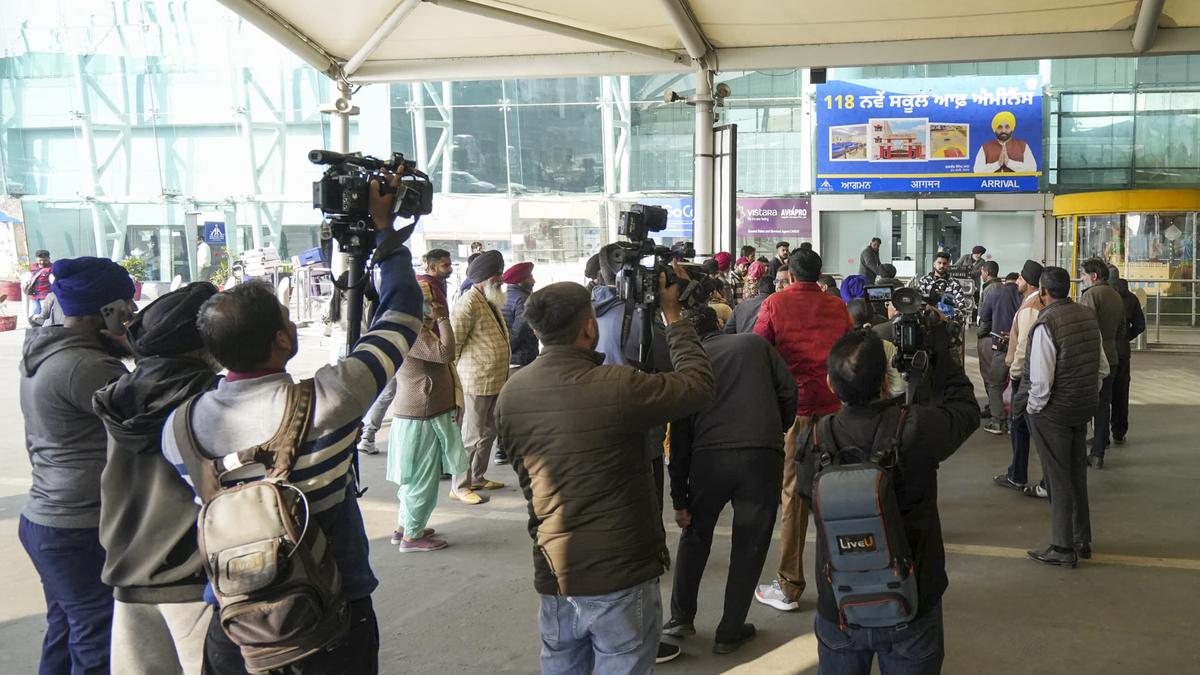 |
|
The recent deportation of Indian nationals from the United States has sparked a significant diplomatic row between the two countries. Images depicting handcuffed and seemingly humiliated Indian migrants being transported on a US military aircraft have ignited strong reactions from Indian political figures and the public. The Congress party, a prominent opposition party in India, has voiced its condemnation, drawing parallels to the 2013 incident involving Indian diplomat Devyani Khobragade, who faced a highly publicized arrest and strip search in the US. This incident led to a significant diplomatic fallout, with India retaliating sharply through various diplomatic and administrative measures.
Pawan Khera, the head of the Congress party's media and publicity department, publicly expressed his sadness and outrage at the images of the deportation, highlighting the perceived humiliation inflicted upon the Indian citizens. He recalled the 2013 incident, emphasizing the strong retaliatory actions taken by the then UPA government under Prime Minister Manmohan Singh, including the withdrawal of several perks granted to the US embassy and the initiation of an Income Tax department investigation into the American Embassy school. The strong stance taken by the UPA government, including the refusal of key political figures to meet a visiting US Congressional delegation, underscores the sensitivity surrounding the treatment of Indian citizens abroad.
The timing of these deportations is also notable, coinciding with the planned visit of Indian Prime Minister Narendra Modi to Washington D.C. This raises questions about the potential impact on US-India relations, already navigating complex geopolitical dynamics. While the US embassy spokesperson has cited tightening immigration laws and the removal of illegal migrants as the rationale behind the deportations, the manner in which these deportations are being carried out has become a point of contention. The use of a military transport aircraft for the repatriation further fuels the perception of harsh and insensitive treatment.
Congress MP Shashi Tharoor offered a more nuanced perspective, highlighting that this deportation is not an isolated event, and similar deportations have occurred under previous administrations. He provided statistics indicating a substantial number of Indian deportations in preceding years, aiming to contextualize the current situation and avoid overly politicizing the issue. While acknowledging the large number of undocumented Indian immigrants in the US, his remarks suggest that the issue transcends the current political climate and is part of a larger trend in US immigration policy.
The incident highlights the enduring sensitivities surrounding immigration issues and the treatment of foreign nationals in the US. The contrast between the official explanations and the public outcry underscores the complexities of international relations and the importance of diplomatic protocols in managing such situations. The potential impact of this incident on the upcoming visit of Prime Minister Modi and the future trajectory of US-India relations remains a significant area of speculation. The use of a military transport plane further emphasizes the scale of the operation and the seriousness with which the US is approaching the issue of illegal immigration.
The broader context includes the ongoing debate about immigration policies in the US, the challenges faced by undocumented immigrants, and the diplomatic implications of handling these issues effectively and sensitively. The contrasting viewpoints expressed by different political figures highlight the range of opinions and the difficulties in reaching a consensus on how to address the complex issue of illegal immigration and the treatment of deported individuals. The upcoming visit of Prime Minister Modi provides an opportunity for both countries to address these concerns and find common ground on issues of mutual concern.
